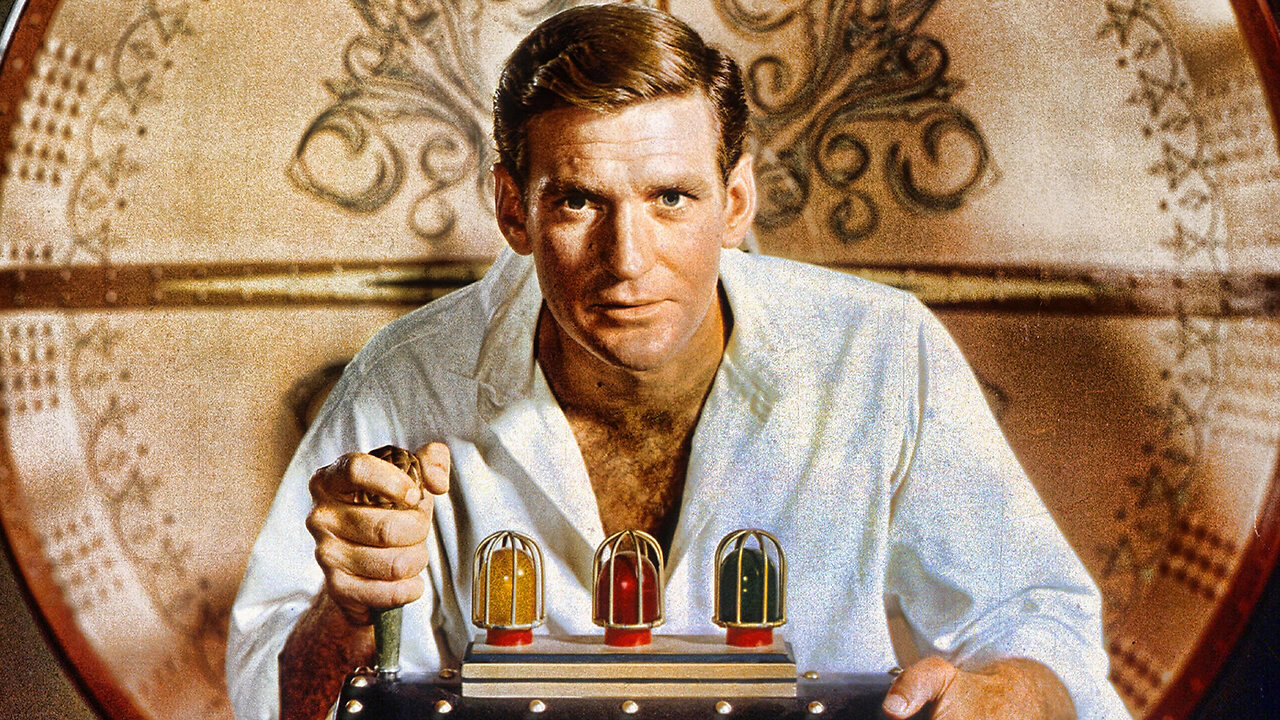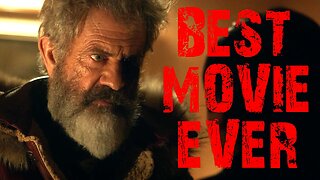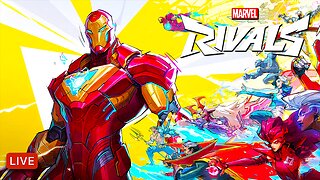Premium Only Content

A World Without Questions?
It was in the year eight hundred thousand and beyond that I found myself among the Eloi, a race of beings so superficially serene, so deceptively content, that I was at first bewitched by their idyllic existence. Here, I thought, was humanity's triumph—a world emancipated from toil, where men and women lived only to bask in the pleasures of life. But as I lingered among them, the sheen of this utopia dulled, revealing a darker truth.
The moment of revelation came suddenly. By the river, a girl—a delicate creature of golden hair and childlike grace—slipped into the water's grasp. She floundered, her cries muffled by the currents. Yet, to my astonishment, her companions stood idle on the shore, their expressions blank, their minds seemingly incapable of mustering alarm. Not a single one stirred to aid her. The scene chilled me to the core, not for its danger, but for their apathy. These were not men and women as I had known them. They were cattle—docile, indifferent, and devoid of will.
When I pulled the girl from the water, their indifference lingered. Not a word of gratitude nor a murmur of disquiet passed among them. I turned to the Eloi, my voice sharp with disbelief. “Why did none of you act? Do you not care for one another?” My questions fell upon ears that seemed scarcely capable of comprehending the words, much less the emotions behind them.
Later, I was taken to a grand hall where they gathered to eat. The sight was almost pastoral—these childlike creatures nibbling on fruits and greens, placid and thoughtless as sheep at pasture. Again, I pressed them with questions, hungering for some trace of intellect, some spark of curiosity. “Where do you come from?” I asked. “What do you do with your days? Who governs you? Who teaches you?” My inquiries unsettled them, their faces tightening with unease. It was clear that to ask such things was alien to them, even unwelcome.
This torpor, this quiet acquiescence to life, was unbearable to witness. In their minds, questions were unwarranted, curiosity a thing to be avoided. It struck me then how closely they mirrored the people of my own age, who so often turned away from the troubles of the world, preferring the comfort of ignorance to the burden of knowledge. I thought of how, in my own time, so many seemed content to live as spectators, their lives consumed by trivialities while the great machinery of the world churned on unchecked. To question the order of things, to look beyond one’s immediate pleasures, was increasingly met with discomfort, even hostility.
When I spoke of books, their eyes lit briefly, and I was led to a room—a library, they called it. But what a library it was! The air was thick with dust, and the tomes, those once-proud vessels of human thought, crumbled at a touch. My heart sank at the sight. Here was the sum of all mankind’s striving, all its wisdom, turned to powder. “What have you done?” I cried, my voice breaking with anguish. “Thousands of years of labor, of sacrifice, of discovery—and this is how it ends? Dust and silence!”
I turned to them, my despair spilling into anger. “Do you not see the tragedy of it? Have you no reverence for the struggles of those who came before you? No pride in the heights they reached?” But their faces, so calm, so incurious, stared back at me with blank serenity.
It was then that I realized the Eloi were no accident of time but the product of a slow decay—a rot that had begun ages before, even in my own era. Already, in my world, I had seen the seeds of this decline: the obsession with ease, the surrender to distraction, the growing scorn for thought and labor and the sacrifices of those who came before us. Had we not, too, begun to treat our knowledge, our achievements, as disposable? Did we not already shy away from the difficult in favor of the immediate, from the eternal in favor of the fleeting?
In the Eloi’s contentment, I saw the ultimate peril of mankind’s complacency. A world without struggle had become a world without spirit, and in their thoughtless happiness, the Eloi had forgotten the worth of all that had come before them. I feared, then, that the Eloi were not so alien, after all—but a reflection of what we might one day become, should we forget to strive, to care, and to ask.
-
 34:12
34:12
inspirePlay
1 day ago $4.45 earned🏆 The Grid Championship 2024 – Cass Meyer vs. Kelly Rudney | Epic Battle for Long Drive Glory!
53.1K8 -
 17:50
17:50
BlackDiamondGunsandGear
8 hours ago $0.96 earnedTeach Me How to Build an AR-15
31K4 -
 9:11
9:11
Space Ice
1 day agoFatman - Greatest Santa Claus Fighting Hitmen Movie Of Mel Gibson's Career - Best Movie Ever
94.5K42 -
 42:38
42:38
Brewzle
1 day agoI Spent Too Much Money Bourbon Hunting In Kentucky
61.5K12 -
 1:15:30
1:15:30
World Nomac
17 hours agoMY FIRST DAY BACK in Manila Philippines 🇵🇭
46.5K9 -
 13:19
13:19
Dr David Jockers
1 day ago $9.81 earned5 Dangerous Food Ingredients That Drive Inflammation
67.5K17 -
 1:05:13
1:05:13
FamilyFriendlyGaming
1 day ago $15.47 earnedCat Quest III Episode 8
123K3 -
 10:39
10:39
Cooking with Gruel
1 day agoMastering a Succulent London Broil
79.6K5 -
 22:15
22:15
barstoolsports
1 day agoWhite Elephant Sends Barstool Office into Chaos | VIVA TV
56.2K1 -
 3:30:40
3:30:40
MrNellyGB
14 hours ago🔴LIVE - GRINDING MARVEL RIVALS RANKED! | #RumbleTakeover #RumblePremium
38.6K1